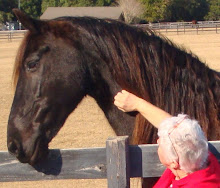
Mema and Granddad at Sardis Dam
Hot and humid nights, when the air conditioner runs and fans stir the air and still your legs stick together and the skin on your neck feels as if you’d smeared it with goo. We’ve had a couple of those lately here in North Carolina. On those nights I wonder how I ever survived summers in the Mississippi Delta. I can remember the big window fan in one window of the bedroom I shared with my brother, and how the other window was only open about four inches; so that we’d get a strong draft through it. The draft, however, did not reach over to my bed against the wall; so I’d crouch in the tiny space between his bed and the wall and put my face in the middle of the open window. I’d write stories in my mind while I listened to the frogs and crickets and the occasional bird. Sometimes the same stories had different endings.
Last night I finished another book, “The Laughing Place” by Pam Durham, and I was appalled at the ending. I think ending are so hard to write. At least readers are hard to please with endings because we want books to end our way. We want answers to our life questions, not their life questions or the characters’ life questions
I remember Sergeant Friday on television in The Dragnet saying, “Only the names have been changed to protect the innocent.” In most books, “only the endings have been changed to suit the authors.” We readers are left to extract what meaning we can from the endings the authors have chosen. If our ethic of life is congruent with their ethic of life, we read them again and again, reinforcing the belief that our way is THE WAY. If we differ, we seldom read that author’s work again.
And, we read the Bible in the same manner. The stories are interpreted as we see them through our various biases and points of view. That’s the only way it can be. We cannot operate without our assumptions of right and wrong. Occasionally we can change them, but we cannot get rid of them. A preacher or teacher has responsibility for presenting other viewpoints, perhaps ones that don’t fit her/his own ethic of life. We need various ways to see God in scripture; we need a community of eyes and ears and hearts so that we can get a broader view of what the Divine One might be like.
Now, Pam Durham’s view of possibility through her character, Annie Vess, is one of acceptance and limits. I was upset, even angry, that “Annie” did not come to see a wider view. No character in the book had a wider view; she had no role models. Society, the world, was a static place. And, I found it overwhelmingly sad. The ethos was gratitude without hope, enough not abundance, acceptance not strength.
Needless to say, that is not my ethos. Appreciation and acceptance of the present and past are essential for our lives, but hope and love must supercede those in my ethos. Enough is good, but God has promised us abundance, and I want all of us to have it, even the characters in books that I read. I want excitement and enjoyment in addition to contentment.
God never talks about life being dull. That’s one thing about the stories of the Bible; they aren’t dull. They’re filled with folk who do outrageous things – both outrageously bad and outrageously good. And, some stories talk about justice, which is never a dull subject. Solomon judged to whom the baby belonged. “OK,” he said. “We’ll just cut the baby in half and let each of you have half.” A ploy to discover which of the two women was truly the baby’s mother. Not dull, but also not part of my ethos. Can you imagine any woman saying, “Well, half a baby is better than none.”? But, not dull.
So, I look at the endings of books, and sometimes, I can rewrite the ending to fit my own ethos. Sometimes I just must realize that the character in the book, with whom I identified in many ways, is not me, does not have my outlook, my experiences or my beliefs. And, I look at both the differences and similarities to figure out how I might have done or might do things differently in my life.
I look at the Biblical stories in much the same way. Right now, I’m reading the Gospel of Mark. I am not Jesus, even though sometimes I act as if I am God. But, I try to see his ethos and his point of view and how it is similar to and different from mine. Then, I try to see how I might live differently, better, closer to God.
Today it is an ethos of abundance with a liberal mixture of gratitude and acceptance.





No comments:
Post a Comment